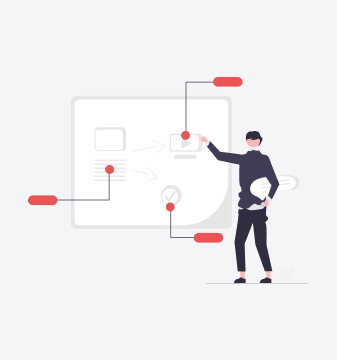As corporate ethics and ethical decision-making evolve in the modern business landscape, organizations increasingly focus on integrating ethical values into their structures and processes. However, the path towards true integrity and responsible leadership has not always been clear or consistent. To understand the future, we must examine the past and present of business ethics evolution.
The Early Focus on Profits Above All Else
In the early days of industrialization, business ethics, as we understand them today, barely existed. The singular focus was on productivity and profits, with little regard for workers or larger societal impacts. This began to change slowly as public outrage grew over clear exploitation and unsafe labor practices. Progressive leaders and social movements highlighted the need for ethical reforms like:
- Child labor laws
- The eight-hour workday
- Workplace safety standards
- Living wages
- Health and retirement benefits
However, most businesses only adopted reforms when necessary, viewing ethical changes as hindering profits.
The Rise of Social Responsibility
Over time, a new paradigm called corporate social responsibility (CSR) evolved that urged businesses to consider their broader influence. Issues like environmental sustainability, community engagement, and workplace diversity began entering boardroom conversations.

Still, CSR programs were often more about driving positive PR than fundamentally altering business practices to align with ethical values. “Business ethics evolution” eventually moved CSR from a nice-to-have to the expected cost of doing business, though results vary widely across industries and organizations.
Modern Compliance-Based Approaches
Today, most medium-to-large companies have extensive ethics and compliance programs focused on obeying laws and regulations. Training educates employees on topics like:
- Anti-harassment
- Data privacy
- Financial transparency
Violations carry heavy penalties and public backlash. However, compliance-based “business ethics evolution” tends to concentrate on avoiding legal issues rather than promoting ethical leadership or integrity as core values.
The Path Ahead
True “ethical decision-making” requires looking beyond compliance to build ethical foundations into business DNA. Rather than reacting when corrections become necessary, proactive efforts to align processes with ethical values could transform organizational culture. Future “business ethics evolution” may shift from micromanaging employee decisions to encouraging accountable, principle-based reasoning that allows for complexity.
There are promising signs of progress in some companies pioneering conscious capitalism, sustainable operations, and cultures of inclusivity and human dignity. However, there is still far to go before “corporate ethics” and “business integrity” become the norm rather than the exception. The journey continues toward the ideal where doing good and doing well are synonymous.
Conclusion
“Business ethics evolution” has always been a work in progress, advancing ethical practices when circumstances demand rather than proactively nurturing morality in business dealings. However, modern standards and public expectations, along with promising movements towards conscious leadership, offer hope for fundamentally integrating ethics into the core of organizational culture and decision-making. The future remains unwritten.
FAQs
1. What does “business ethics evolution” refer to?
The development of ethical practices, policies, and leadership approaches in business environments over time.
2. How has the focus shifted in modern “business ethics evolution”?
From reactive responses to scandal and exploitation toward proactive efforts centred on positive values like human dignity, accountability, and consciousness of impacts.
3. Why does authentic “ethical leadership” matter?
It fosters cultures where making ethical choices aligns with success rather than hinders it, builds public trust, and prevents scandals/crises.
4. What is driving change in “business ethics evolution”?
Evolving societal standards, public scrutiny, competitive advantage needs, conscious leadership.
5. What ethical issues do modern businesses face?
Data privacy, sustainability, technological disruption, inclusion, fair labor practices, evaluating broader community impacts of decisions.
6. What are examples of promising ethical practices?
Conscious capitalism initiatives, benefit corporation legal models, ethical supply chain audits/interventions, reporting on human rights impacts.




